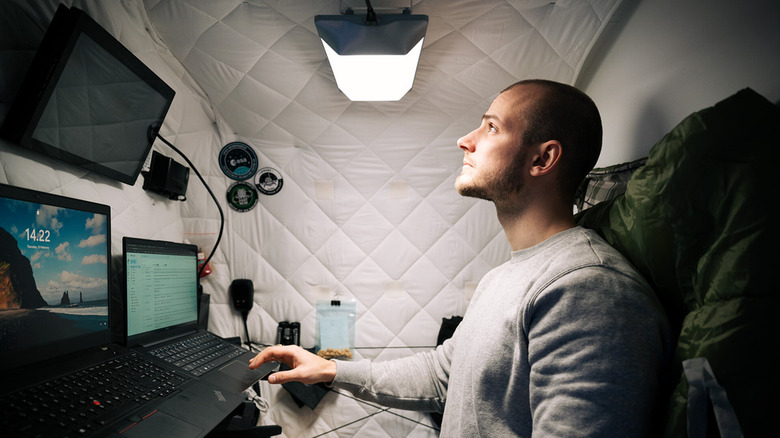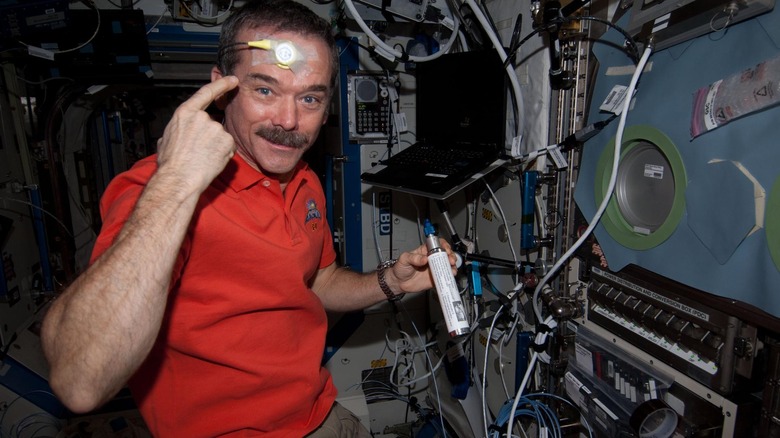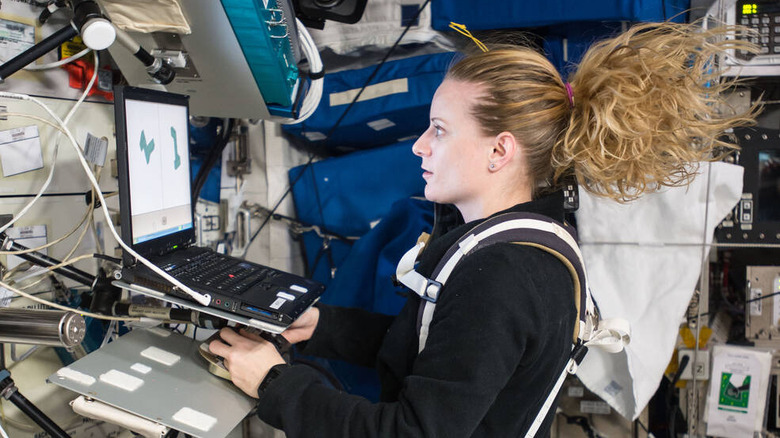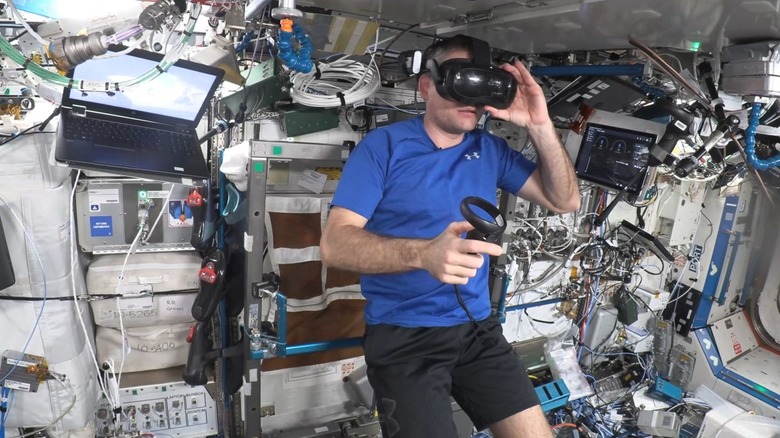How Scientists Research Astronauts' Mental Health In Space
Keeping astronauts healthy in space isn't only a matter of making sure that they get enough exercise and good food to eat. It's also important to consider their mental well-being. This is an important factor in any job, but it's particularly important for people who are living in space aboard the International Space Station (ISS).
As there is no standard day and night cycle, it can be hard to adjust to the sleeping schedule. And of course, the astronauts are limited in their movements, with no possibility of heading out for a walk to stretch their legs when they are feeling restless. They are trapped with a small number of colleagues who they may or may not get on with, and have only limited contact with family and friends. All that doesn't even mention the highly regimented lifestyle that they live, in which almost every minute of their day is planned and laid out for them.
All of this can have a negative impact on mental health. There's a link between mental and physical health too: after all, it's hard to feel positive if you keep getting nauseous, as some people do when they experience space sickness. It works the other way round as well: if someone is depressed, their bodies can be less capable of fighting off infections or other ailments.
So, it's clearly important for space agencies to research how to support astronauts' mental health, which is why there are a variety of experiments into this topic going on right now.
Circadian rhythms
One big issue for astronauts traveling off Earth is trying to recreate the circadian rhythms of the body. We are used to a 24-hour day cycle, and generally being awake when it is light and asleep when it is dark. There is added nuance here too, about how different colors of light affect sleep cycles, and exactly how much sleep each person needs.
To try to recreate these cycles in an artificial environment, the ISS operates on a fixed time schedule. It uses GMT, or Greenwich Mean Time, with wake up around 6:00 a.m. and sleep at around 9:30 p.m. That allows around half an hour to fall asleep, followed by a full eight hours of sleep.
However, simply setting sleep and wake times is not necessarily enough to regulate circadian rhythms. Light is important too, so astronauts on the ISS are testing out a lighting system designed to mimic the different types of light seen at sunrise and sunset. The system doesn't just do the same thing every day either. As on Earth, it tries to recreate different conditions, where some days are brighter than others, to bring variation to each day.
Researchers also need a way to track how effective these systems are at adjusting astronauts to circadian rhythms, so they have developed a skin sensor which astronauts can wear on their forehead and which monitors their body core temperature — an important indicator for circadian rhythms — without getting in the way or being invasive.
Social support and communication
Another factor that psychologists know is very important to mental health is social support, or being able to connect with family and friends. Astronauts on the ISS can chat with loved ones relatively easily thanks to good connectivity between Earth and low-Earth orbit. However, for astronauts traveling on planned missions to Mars, things will be harder.
With longer distances between Earth and Mars, there is a communication delay of up to 20 minutes due to the speed of light. So, these future astronauts won't be able to chat in real-time with their families.
Researchers have looked at how astronauts could be affected by this delay, and how it would make communication for both work and social purposes more difficult. One option is to use the ISS itself as a communication relay, to reduce the delay somewhat.
Other research found that increased delays were related to increased stress and frustration, and that it made communication and teamwork harder. That won't come as a surprise to anyone who has had to deal with a slow internet connection during a Zoom meeting, but it does demonstrate some of the facts about spaceflight that can cause stress and other psychological issues when astronauts try to travel far beyond Earth.
Some ideas to address this problem are through training and teamwork for long-duration space crews, but the communication delay is a hard fact of physics which is difficult to work around.
Seeing the bigger picture
One well known psychological effect of space travel is called the overview effect. It's an effect many astronauts report when they travel into space and see Earth, experiencing it as being unified, small, or particularly significant against the blackness. Often astronauts report that traveling to space has fundamentally changed the way they see the planet and humanity.
That isn't itself a bad thing, but it shows how psychology can shift in space. One scheme to both investigate this phenomenon and to provide important information for researchers is called Crew Earth Observations, where ISS crew members are encouraged to take photographs of their views from the space station.
These photographs are not only stunning visuals for the public to enjoy, but they can also be helpful for purposes like tracking weather events, seeing crop use, studying urban growth, and observing glaciers or coral reefs.
What's more, researchers have found that taking these images helps to improve the mental well-being of crew members, who get to enjoy the beautiful views and also be reminded of their connection to humanity and the planet. Taking photographs from the station's cupola is apparently a favorite leisure time activity of many ISS astronauts.
However, astronauts miss home too, so there are also experiments into using VR technology to help astronauts relax and experience calming nature scenarios. There's even a VR for exercise program where astronauts can experience a virtually generated landscape as they cycle on the station's exercise bike.



